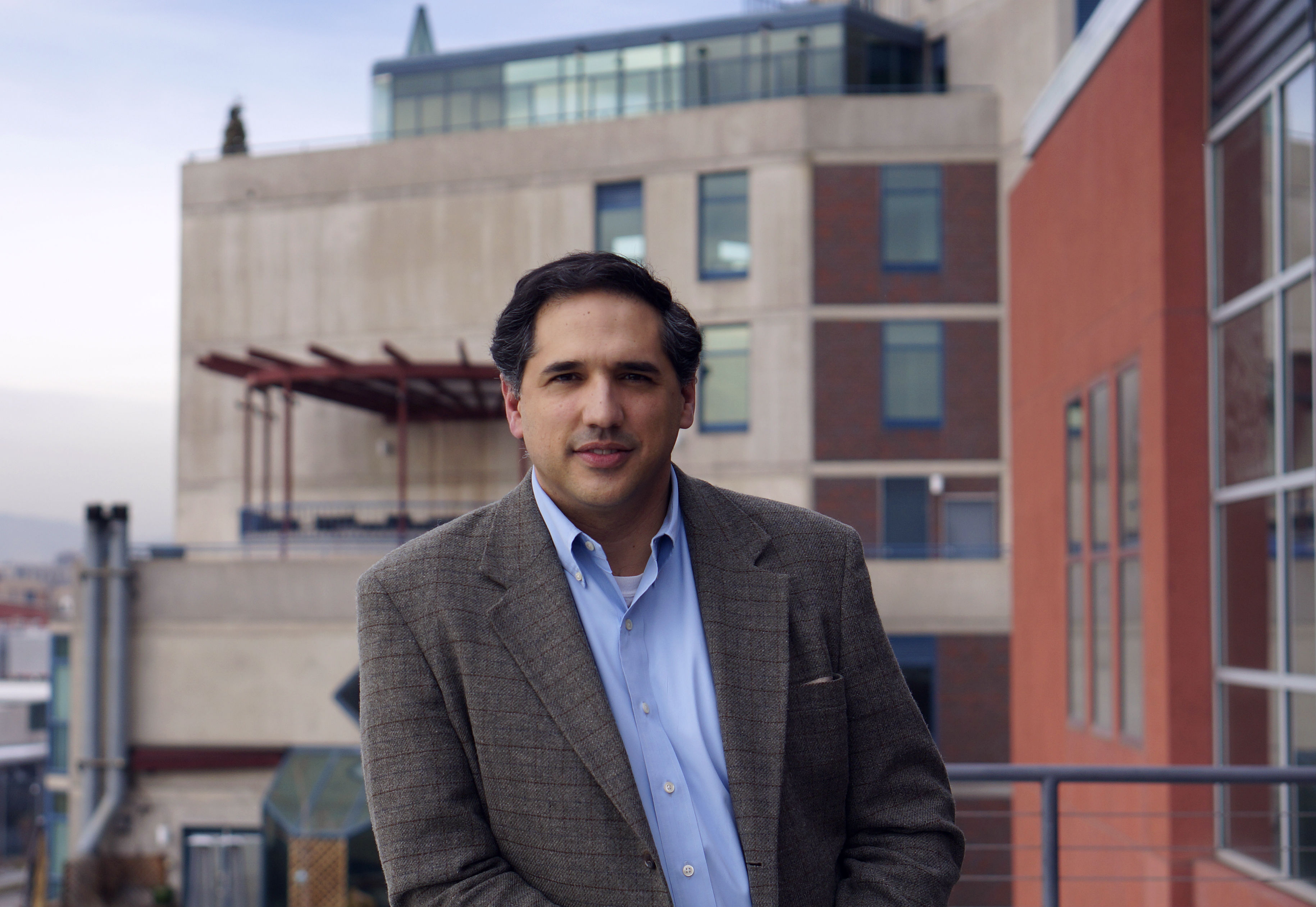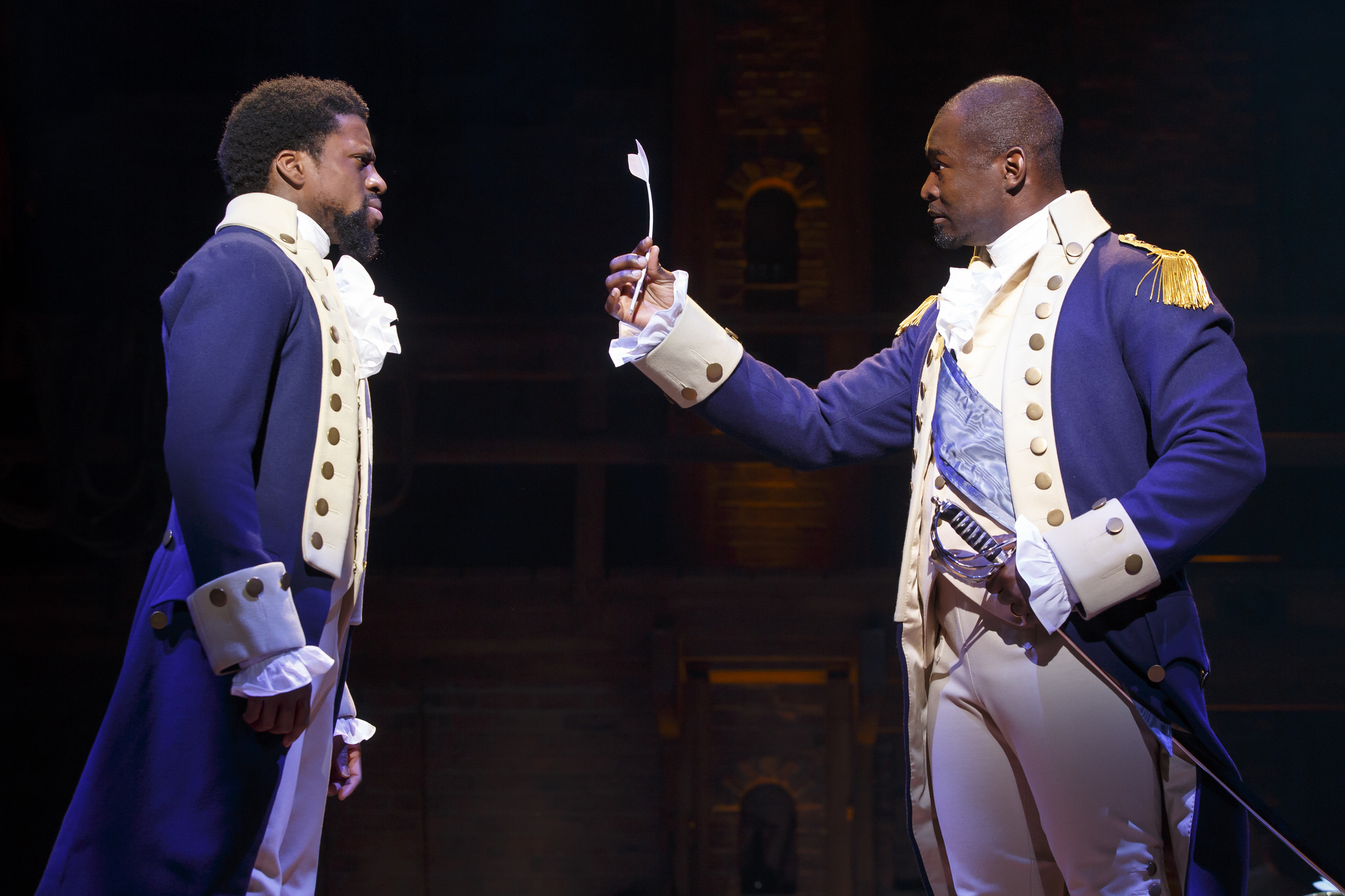
Hamilton" comes to Denver this month. Getting a ticket for the show was no easy feat, as many tens of thousands of people experienced when they tried their luck.
Tickets were no longer available by mid afternoon that day. But, pretty much as soon as the Denver Center for Performing Arts’ sale ended, you could find tickets on resell sites, such as StubHub, SeatGeek or Craiglist, some going for more than $2,000.
A small consolation: For every Denver performance of “Hamilton,” 40 $10-dollar tickets will be available through a digital lottery system — Alexander Hamilton is on the $10 bill after all.
Why the frenzy? "Hamilton" is a lucrative business. After it opened on Broadway in 2015, New York Times theater critic Ben Brantley wrote, "I am loath to tell people to mortgage their houses and lease their children to acquire tickets to a hit Broadway show. But “Hamilton"... might just about be worth it." And people have shown they're willing to pay big bucks for these tickets.
Across the board — plays, concerts and more — it's estimated that the resell market brings in more money than the primary ticket market. That means ticket brokers could be profiting more off of certain shows than the artists that created them. Which is probably why artists like “Hamilton” creator Lin-Manuel Miranda has fought scalpers so hard. He was a leading advocate for Congress to outlaw ticket-scalping bots, which it did in 2016.
The Denver Experience
The DCPA's ticketing policy states that tickets cannot be resold above face value. The organization put some new steps in place with “Hamilton” to squash the attempts of ticket brokers, who buy up tickets and then sell them for way more than the original price. DCPA’s staff has spent the last several weeks analyzing each and every transaction. If they find that a sale violated their policy, DCPA has said it will cancel that transaction.
DCPA said it did find some “Hamilton” customers in violation of the organization’s policies: “Any canceled seats may be available to the public as we get closer to the engagement. We welcome patrons to check back at... at their convenience to purchase any tickets that may be made available.”

 Hard tickets go in the mail this week for the transactions DCPA determined to be valid.For those who selected will call, day of the show, they'll be able to pick up their tickets at the box office with an ID matching their account information.
Hard tickets go in the mail this week for the transactions DCPA determined to be valid.For those who selected will call, day of the show, they'll be able to pick up their tickets at the box office with an ID matching their account information.
The organization’s vice president of information technology, Yovani Pina, is reluctant to share too much about his process for filtering out bots and ticket resellers. He says “walking you through the process might give away some of the techniques that we use, and that might make it easier for the brokers to say, ‘I got it. Now I know what you're looking for.’”
His team is composed of DCPA employees from the IT department and the box office. During the public sale, he also collaborated with workers from the third-party ticketing platform DCPA uses — he declined from saying the name of the company.
While DCPA has long used techniques to discourage scalpers, he says the organization has been particularly thorough with “Hamilton tickets.” Its newest tool, is Queue It, a virtual waiting room, which DCPA used for the public sale last month. Patrons logged into this virtual waiting room between 9-10 a.m. and were assigned a random number for their place in line to buy tickets.
Pina says it helped them control the large flow of users so their systems would not be overwhelmed. Queue It also put another obstacle in front of bots, which can nab a bunch of tickets at much faster rates than a person.
“We used randomization, so bots that could have potentially had the first thousand places in line [are] now scattered throughout,” says Pina. “It makes it harder for them to get through and execute the purchase."
Pina says they didn't see any instances of Queue It being hacked during the “Hamilton” ticket rush. And while he’s light on specifics, he says his team “uses information and data from other sources” to determine if a transaction will be considered valid.
There's no statewide law on scalping in Colorado. But in some cities, like Denver, selling tickets at a premium or selling a ticket to someone who you know to be scalping is illegal. This doesn't apply to tickets bought over the Internet. But one attorney we contacted for this story said that Craigslist gets a bit murky with this law. While the agreement of a transaction may occur online, in the case of Craigslist, the exchange often happens in person, which means you could be breaking the law in cities like Denver.
During the “Hamilton” sale, a link was shared on social media that allowed people to get around the virtual waiting room and purchase tickets as early as 9 a.m. Pina said DCPA’s ticketing vendor identified the work-around and blocked it. It's not clear how many people used it and successfully jumped the line. Pina said though, that as long as the transactions themselves followed DCPA's ticketing policy, they're honoring those tickets.
Differing Approaches
The U.S. tour of “Hamilton” stops at the Blumenthal Arts Center in Charlotte, North Carolina this fall, and the organization there watched how DCPA handled its ‘Hamilton’ sale. Like DCPA, the Charlotte venue really pushed the message to buy only from them. They also search their databases daily looking for suspicious transactions and sometimes buy tickets listed on resell sites, void that sale in their system, contact the credit card company to report the ticket was ill gotten and has no value, then made that ticket available to the public.

Big names like Taylor Swift and Bruce Springsteen have started using a Ticketmaster program called Verified Fan. People sign up for it and are then invited to buy tickets for shows they're interested in. The idea is to create a system that allows Ticketmaster to evaluate if someone is a fan or a ticket broker. "Hamilton" on Broadway has signed up for this program.
And other places, such as the “Hamilton” run on London’s West End, are trying paperless tickets. Which means, at the theater, you have to show your ID and the credit card you used to buy your ticket to get in. But imagine if you want to buy tickets as a gift, or you can't go to a concert at the last minute and want to give those tickets away — paperless tickets have their own challenges for the patron.
People who watch this industry say these tactics might slow down a ticket broker at first. But they usually find a way around it. It can also be difficult to determine someone's intentions just by digging into data.
“Fans are actually a part of the problem,” said Christian Hassold, who runs a website called The Ticket Economist. He's been following the politics and economics of this secondary market for more than a decade. “The secondary ticket market has gotten so big, it's not just professional sellers. It's college students. It's stay-at-home mothers and stay-at-home fathers who, when they only need two they buy four and they sell the other two to pay for the other two tickets."
Economists echo the idea that too much blame is placed on the secondary ticket market and that this market exists because of simple economics: scant supply and huge demand.
“If people are willing to pay more than kind of the arbitrary face value then that seems perfectly legitimate from an economic standpoint,” said Mark Perry, who teaches economics at the University of Michigan’s Flint Campus. He's also a scholar for the conservative-leaning American Enterprise Institute in Washington D.C. and has done research on ticket scalping. Perry says it's not fair to conflate scalping with scamming.
“Just like, if you had a rare coin — it was an old nickel and I would pay you a dollar [for it]. That's above the face value of the nickel, but I'm willing to pay it and we would never consider that coin scalping,” says Perry. “Or when there's a hot housing market and sometimes houses are selling for above the list price, then that's not considered house scalping. So we kind of treat tickets in a very special and unique way that's not justified by any economic theory.”








